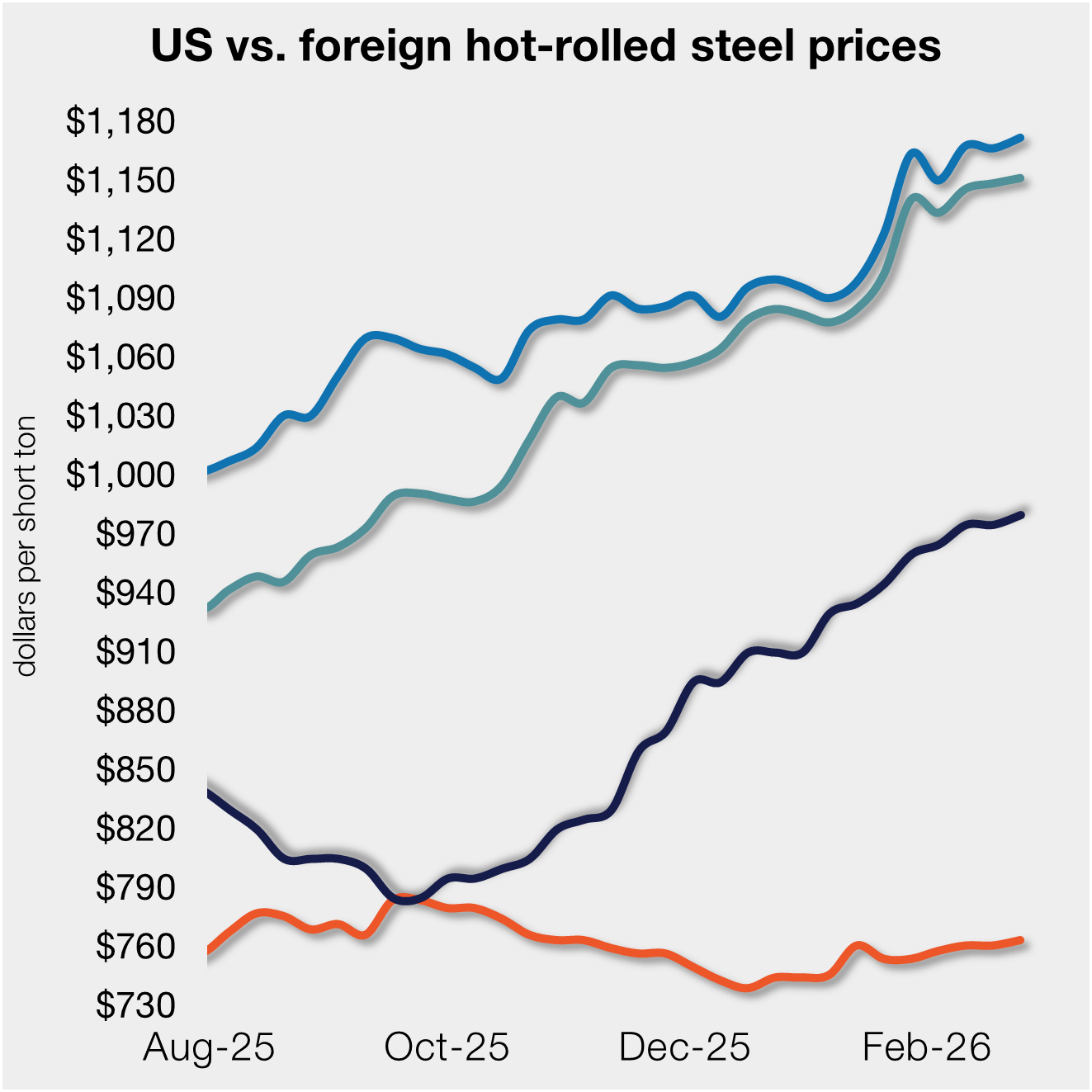Overseas

June 22, 2023
DOE Dishes Out Millions to Help Decarbonize Iron and Steel
Written by Laura Miller
The US Department of Energy has awarded 10 projects with a combined $31.9 million in funding to help decarbonize the iron and steel industry.
Through its Low Emissions Steel Manufacturing Research Program, the DOE funding will focus on advancements enabling decarbonization in both ore-based and scrap-based steelmaking, it said. Projects that convert existing operations to use clean fuels or electricity are also included in the funding, according to a news release from the DOE.
The 10 projects selected to receive this round of funding are:
- Carnegie Mellon University (Pittsburgh)
- Case Western Reserve University (Cleveland)
- GTI Energy (Des Plaines, Ill.)
- Hertha Metals Inc. (Brownsville, Texas)
- Idaho National Laboratory (Idaho Falls, Idaho)
- Molten Industries (Oakland, Calif.)
- Pennsylvania State University (University Park, Pa.)
- Purdue University Northwest (Hammond, Ind.)
- Tufts University (Boston)
- University of Minnesota Twin Cities (Minneapolis)
“America’s industrial sector serves as the engine of the US economy, producing many of the products we rely on every day, but also produces a significant amount of the nation’s carbon emissions,” said US Secretary of Energy Jennifer Granholm.
“These projects funded by President Biden’s Investing in American agenda will slash industrial emissions and accelerate next-generation technologies for a clean energy future that’s made in America,” Granholm added.
The iron and steel industry is one of five energy-intensive subsectors which are the focus of the DOE’s push to reduce industrial emissions. The agency has approximately $6 billion available to help decarbonize the iron and steel, cement and concrete, chemicals, food and beverage, and the petroleum refining industries.
By Laura Miller, laura@steelmarketupdate.com







